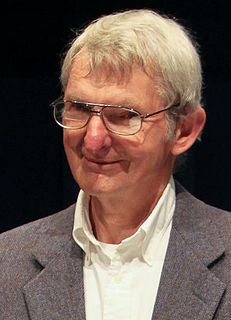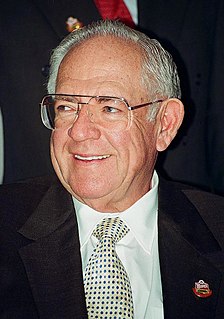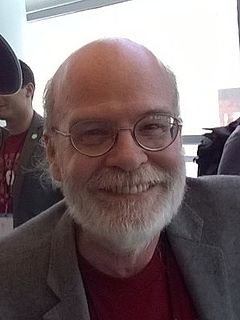A Quote by Douglas McIlroy
The real hero of programming is the one who writes negative code.
Related Quotes
There's a subtle reason that programmers always want to throw away the code and start over. The reason is that they think the old code is a mess. [...] The reason that they think the old code is a mess is because of a cardinal, fundamental law of programming: It's harder to read code than to write it.
My impression was and is that many programming languages and tools represent solutions looking for problems, and I was determined that my work should not fall into that category. Thus, I follow the literature on programming languages and the debates about programming languages primarily looking for ideas for solutions to problems my colleagues and I have encountered in real applications. Other programming languages constitute a mountain of ideas and inspiration-but it has to be mined carefully to avoid featurism and inconsistencies.
Here's the point - and Jonah Goldberg reminds us of this. He wrote a blog post that was titled "The MacGuffinization of American Politics." Do you know what a MacGuffin is? "'In a movie or book, 'The MacGuffin' is the thing the hero wants,' Ace writes." So in the Maltese Falcon, for example, the hero wants the Maltese Falcon, but there's always somebody trying to stop the hero from getting what he wants.
In this respect a program is like a poem: you cannot write a poem without writing it. Yet people talk about programming as if it were a production process and measure "programmer productivity" in terms of "number of lines of code produced". In so doing they book that number on the wrong side of the ledger: we should always refer to "the number of lines of code spent".
There's a definite sense this morning on the part of the Kerry voters that perhaps this is code, 'moral values,' is code for something else. It's code for taking a different position about gays in America, an exclusionary position, a code about abortion, code about imposing Christianity over other faiths.







































